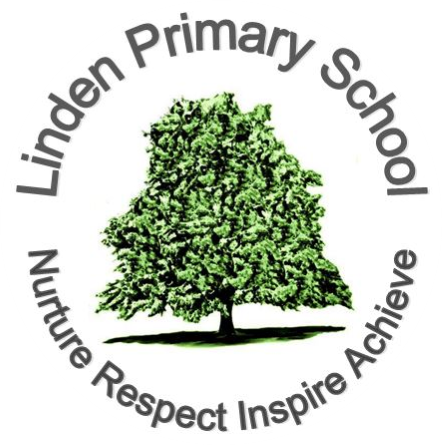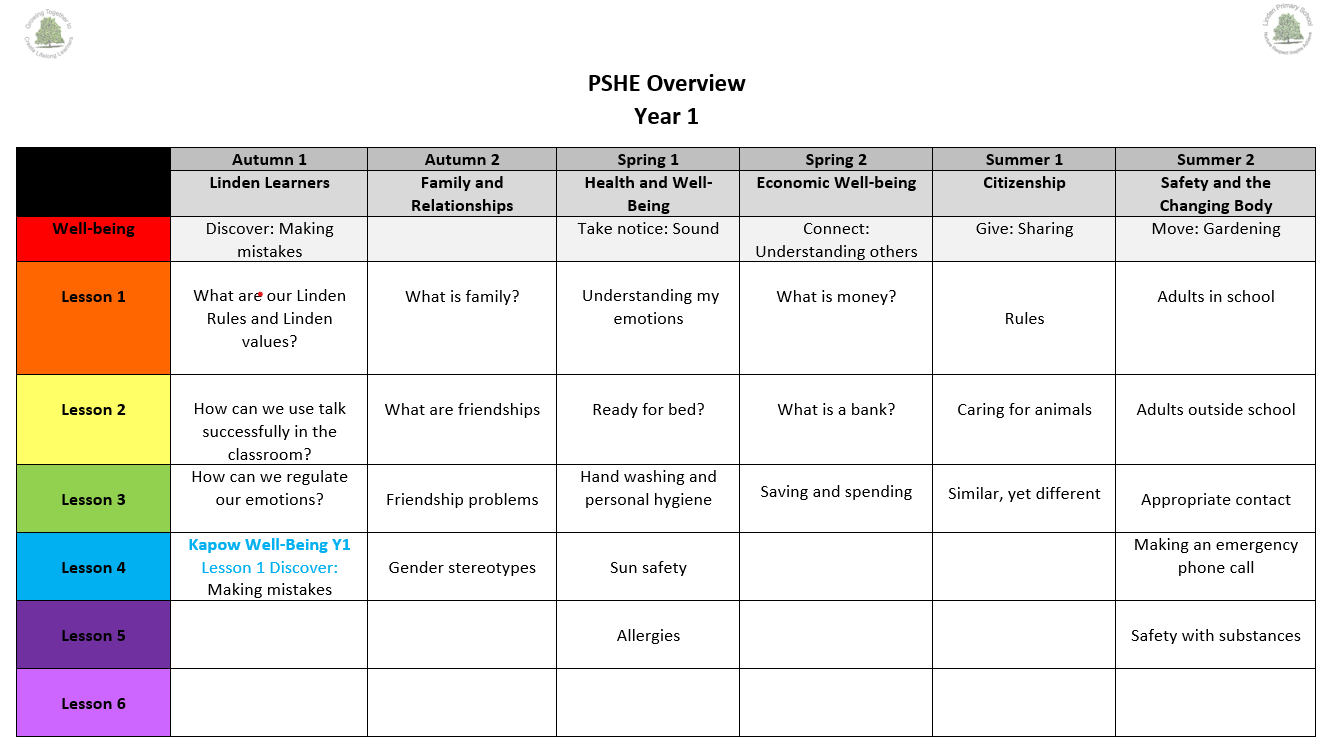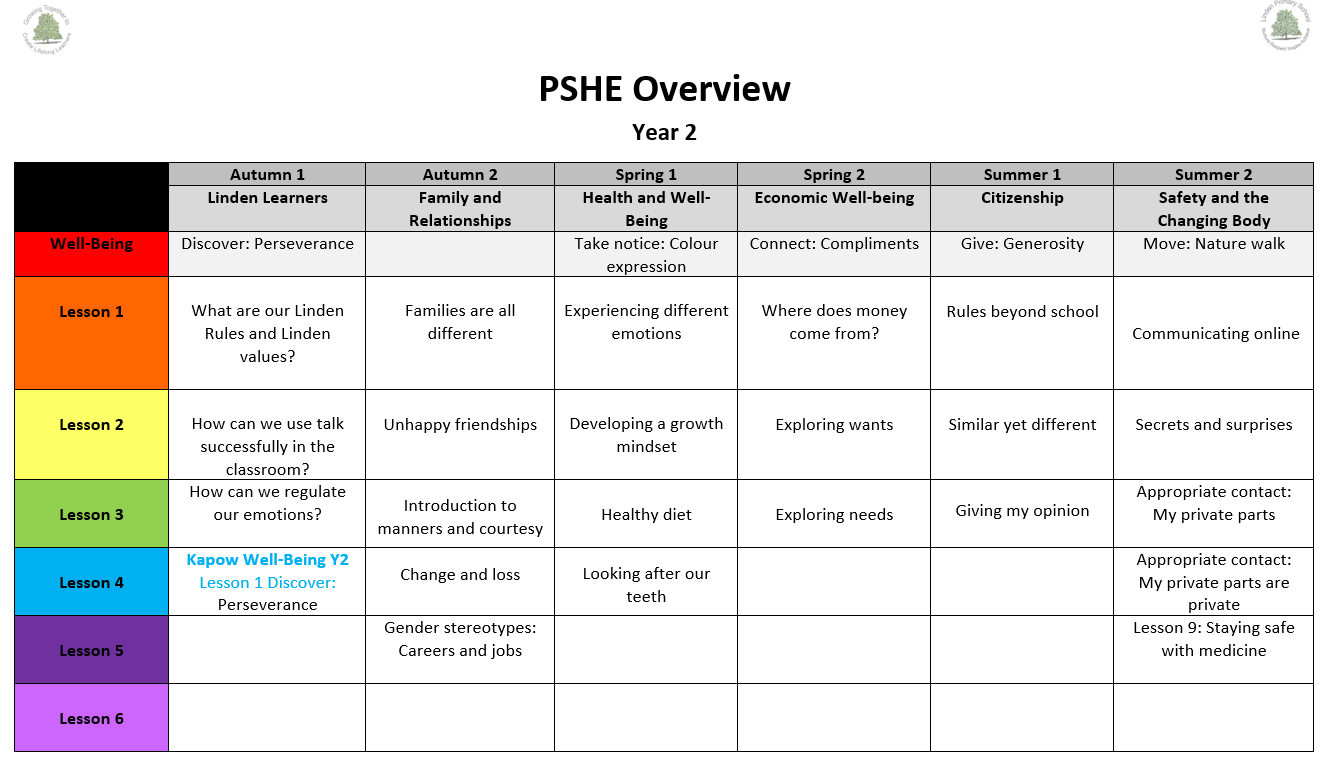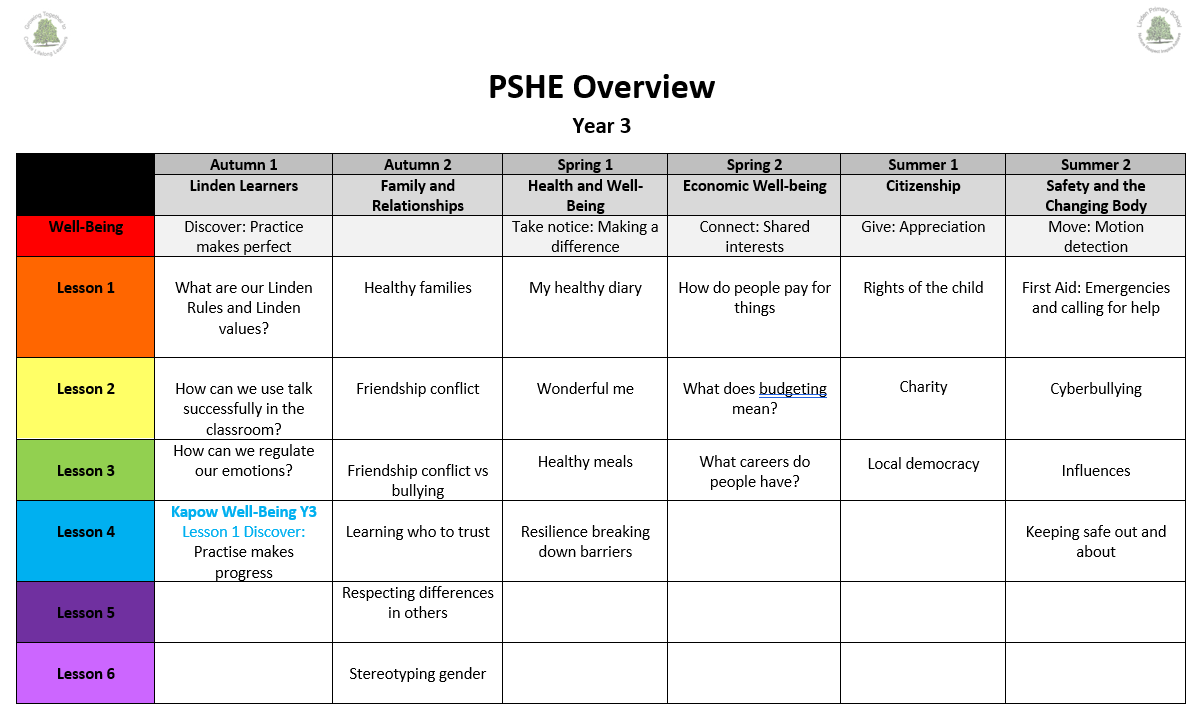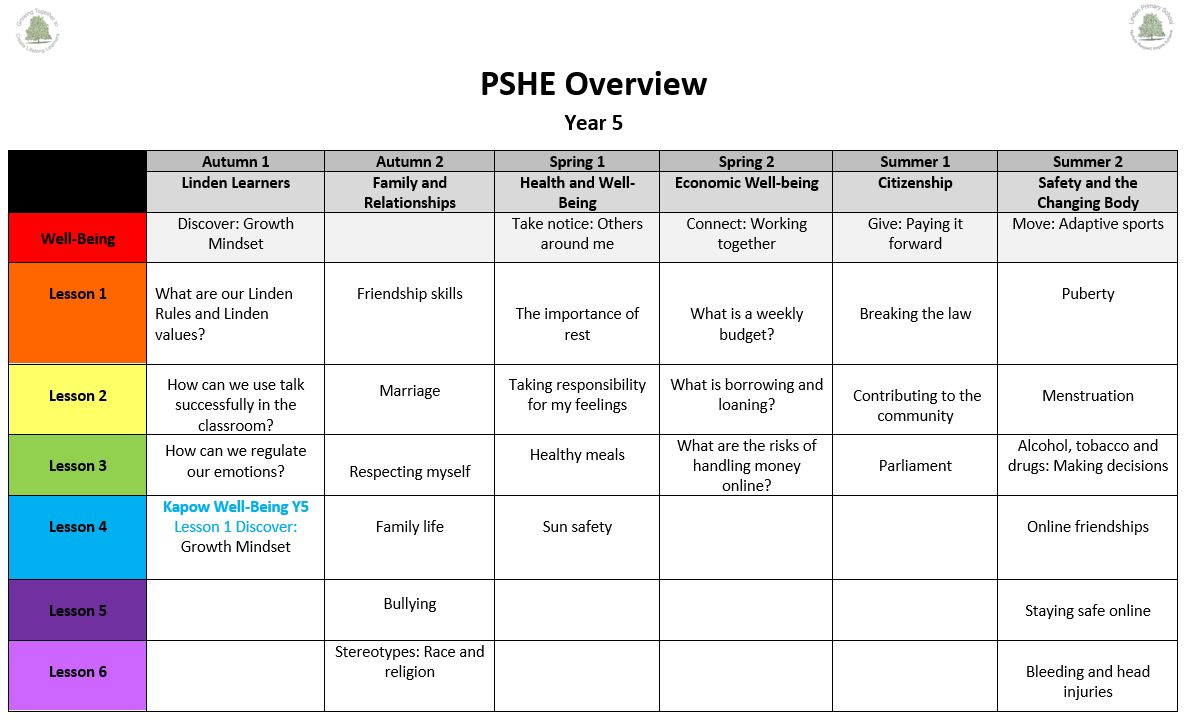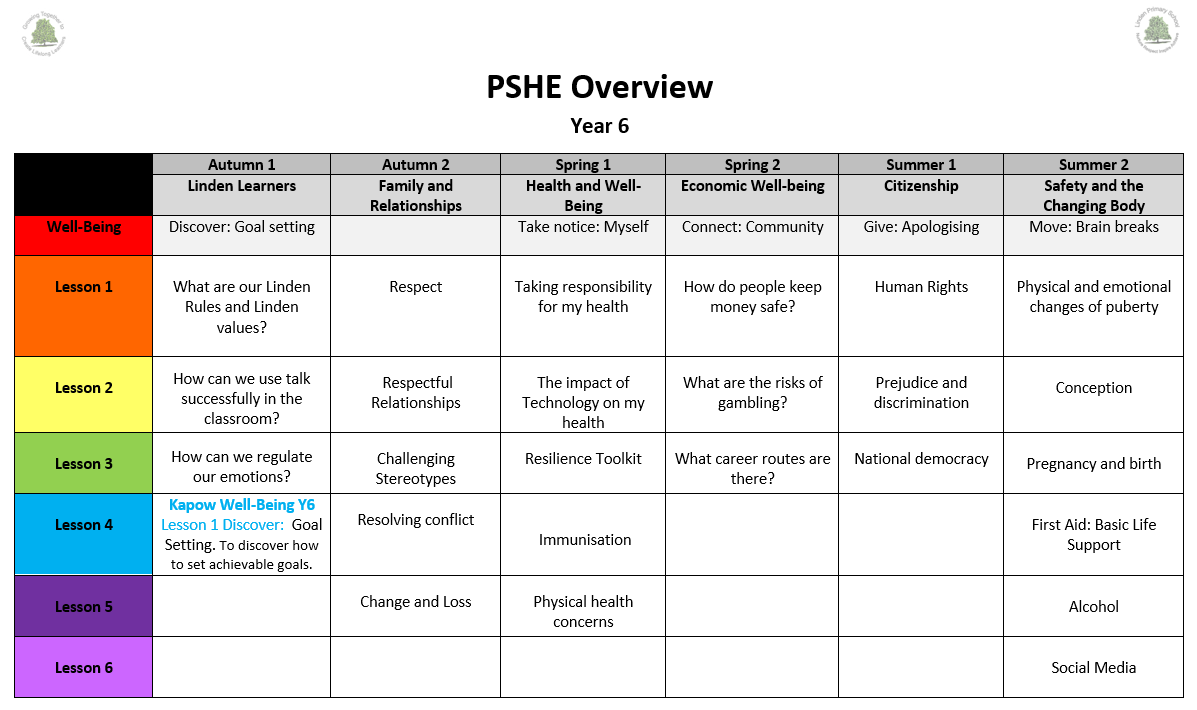PSHE
We aim to encourage all students to develop an understanding of the ever-changing world through a holistic approach. By engaging in physical activities, making positive lifestyle choices and having an awareness of their own mental well-being, children will be able to manage their own lives effectively.
Classes follow the Kapow scheme of work which covers a range of Personal, Social and Health issues
These include:

The scheme provides opportunities to cover advised curriculum coverage, relevant in today’s society alongside exploring social and emotional skills.
Alongside the curriculum coverage, we address the British values strand as well as strong links to SMSC (Social, Moral, Spiritual and Cultural) development.
Whole school overview
Please click on the PDF link below for the whole school PSHE overview:
Year group overviewsverviews
Knowledge Organisers
Year 1
Year 3
Year 5
Year 2
Year 4
Year 6
Relationships, Sex and Health Policy
Parents' and carer's guide for Relationships, Sex and Health Education (RSHE)
From the academic year 2020-2021, all primary schools in England must teach Relationships and Health Education (RSHE). The government has set out guidance about what they expect children to know by the time they leave primary education but it is up to schools to decide how they will teach this. Schools will discuss their approach with parents and carers.
There is no legal requirement for schools to teach sex education but the government recommends children learn about some key areas before they leave primary school.
Many schools will have been teaching these topics for a number of years. As with other subjects, we will work hard to make sure the lessons meet the needs of the children and are age appropriate. These topics are really important in helping children deal with current experiences and also to prepare them for the next stage of their education and ultimately for adult life.
Schools and the government recognise the important role you play in educating your children and this is especially true for RSHE. It is important that children can discuss and ask questions both at home and at school.
What will my child be learning about?
Your child's school has chosen to use lesson plans from Kapow Primary, an online provider of resources for primary schools. These lessons cover the statutory requirements and have been carefully planned to be age appropriate. They also give the opportunity for children to revisit topics in different year groups. This is important as they will learn more and see things differently as they mature.
The lessons are divided up into three overarching themes:
- Families and relationships
- Health and wellbeing
- Safety and the changing body
Families and relationships
- How to form and maintain friendships
- I mportance of family
- Different types of families
- Dealing with problems in friendships
- Online relationships, including staying safe
- Stereotyping
Safety and the changing body
- Online safety
- Safety around adults
- Understanding their body
- Physical changes during puberty
- Emotional changes during puberty
- Asking for help when needed
Health and wellbeing
- Mental health and wellbeing
- Healthy eating
- Physical activity
- Dental health
- Importance of sleep
- Medicines
- Tobacco
- Alcohol
- First aid
The lessons will give children the opportunity to increase their knowledge and understanding of the topic. They will also be able to explore their feelings and ideas about topics and listen to the views of other people. The overall aim is for children to be able to make their informed choices and decisions.
Will my child have to take part?
All the content outlined above is statutory and therefore all children should be taught it. As with any other subject teachers will ensure that the lesson is taught in a way which means children of all abilities will learn. The government is very clear that they want children with special educational needs (SEN) to be included in these lessons.
As a parent you do not have the right to withdraw your child from any of the statutory content on either relationships or health. You only have the right to withdraw your child from the sex education content that we choose to teach, apart from National Curriculum Science. It is recommended that you talk to your child's school about this before making a decision.
Parents and carers are sometimes concerned about the conversations children may have in RSHE lessons, but teachers have lots of ways to make sure children are safe in these lessons. For example, they will have ground rules to make sure children feel confident to share their ideas, they will use things like puppets and stories, so children are discussing a made up characters' experiences rather than their own. They also know the children in their class well and will have a sense of their needs and what they teach will be age appropriate.
It is important to balance what children know already and to prepare them for the future. Discussing issues in the safe learning environment of the classroom before they experience them in real life is very valuable for children.
We will be very happy to share more information with you on how they approach these topics.
(Taken from kapowprimary.com)
Relationships and Sex Education (RSE) Guidance for parents
Please click on the link below to view the presentation from the Year 5 /6 parent consultation meeting:
Year 5 / 6 parent consultation meeting
What is Relationships and Sex Education (RSE)?
Why do schools teach RSE?
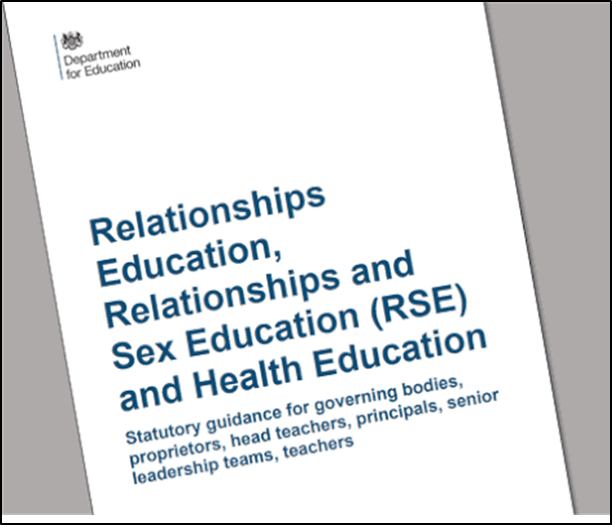
What will my child be learning about?
How will RSE be delivered?
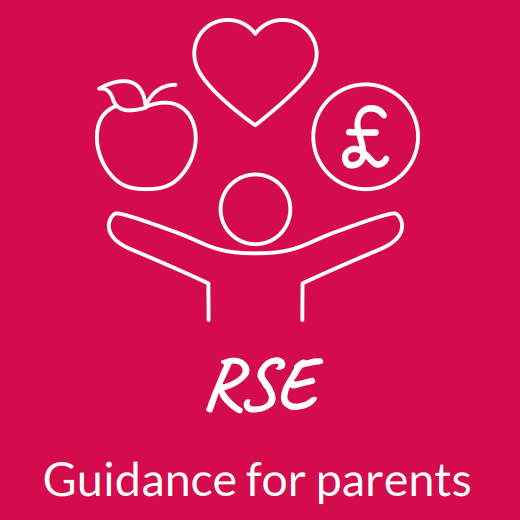
Please click on the PDF link above for Relationship and Sex Education Guidance on curriculum coverage across EYFS - Year 6.
RSE Frequently Asked Questions
Q: What happens in primary school for RSE?
-Every child has a right to feel accepted, valued and safe in school regardless of their gender, family background, religion, race or identity.
-We take steps to ensure that every child sees themselves and their families reflected in their school environment.
-We consider the needs of their pupils and ensure that the curriculum includes a progression of skills and ideas from Reception to Year 6.
-A child will usually receive their regular PSHE lessons from their class teacher who knows them and their families.
-We will teach about human sexual reproduction as part of ‘sex education’. There are many overlaps with national curriculum for science which includes teaching about sexual reproduction in animals. Parents can ask their child be excused from teaching about human sexual reproduction at primary.
-Every child will be taught about their bodies and that they have the right to say what happens to their bodies as part of Relationships Education. This is to enable children to keep themselves safe from abuse and exploitation.
-Every child will be taught about how their body and brain will change as they got older as part of Health Education. They will get timely information about puberty and how to manage it.
- Every child will explore attitudes, stereotypes and behaviour to build self-awareness and confidence.
- Every child will explore how to ask trusted adults for help and how to be supportive to their peers.
Q: Does the new Relationships Education and RSE curriculum take account of my faith?
A: -The subjects are designed to help children from all backgrounds build positive and safe relationships, and to thrive in modern Britain.
-The views of different faiths (and groups within them) and cultural groups can be explored alongside medical facts/science and the law in our country.
- Pupils will learn to listen to and engage respectfully with people who hold different views to theirs’.
-The views of different faiths on matters pertaining to families, relationships and health are also discussed in other subjects such as Religious Education.
Q: Do I have a right to withdraw my child from Relationships and Sex Education?
A: Parents will have a right to withdraw their child from sex education delivered as part of RSE. There is no right to withdraw from Relationships Education at primary or secondary school.
Lessons that parents can choose to withdraw from at Linden are:
Year 6: Lesson 2 Conception - Learn about the biology of conception (main event of this lesson).
Lesson 3 Pregnancy and birth - Learn how a baby develops in the womb and is born.
Q: Will teachers receive training before delivering these subjects?
A: As part of our continuous professional development for staff, all staff will trained and supported to deliver the RSE curriculum.
Q: What can I do for my child?
A: -Visit the RSE section of our school website for information about the school curriculum and what your child will be learning.
-Support your child’s learning at home, by reading with them, asking their views on what they have learnt.
-Be the trusted adult who offers their child unconditional love and non-judgemental support, so they know they can always come to you if they have worries or concerns about friendships or relationships as they grow up.
Useful Websites
To continue supporting your child(ren) in regards to PSHE and its coverage below are some useful websites.
https://www.outspokeneducation.com/ (click on the tips by age to ensure age appropriate content)
https://kidshealth.org/en/parents/talk-about-puberty.html
Additional support and guidance to areas more specific to them and their family
https://mermaidsuk.org.uk/parents/ ( Information in supporting your child with transgender and gender dysphoria
https://kidshealth.org/en/parents/positive/?WT.ac=p-nav-positive (Topics include first aid, staying healthy, making friends.)
https://www.stonewall.org.uk/help-advice/coming-out/coming-out-advice-and-guidance-parents (LGBT)
